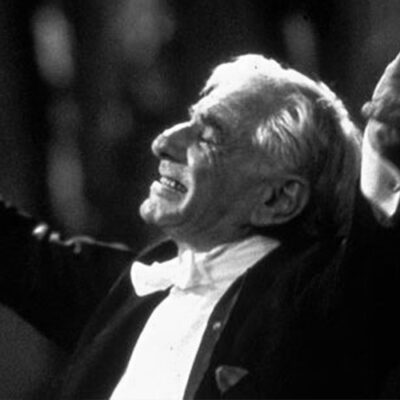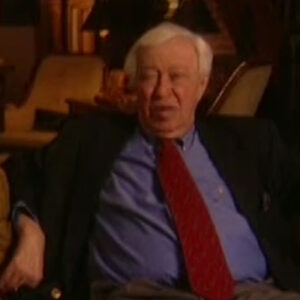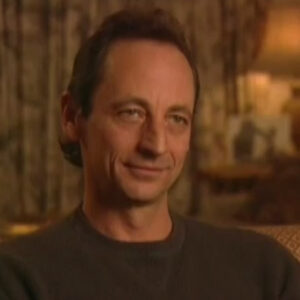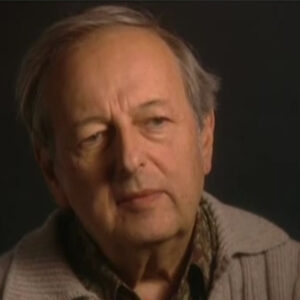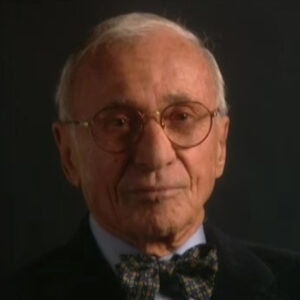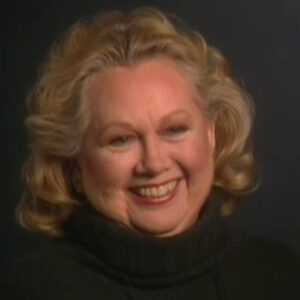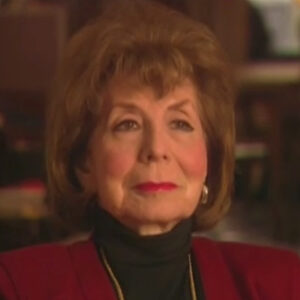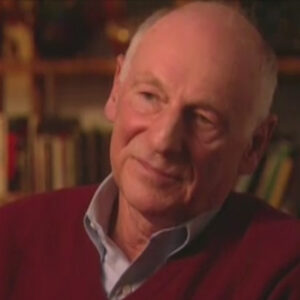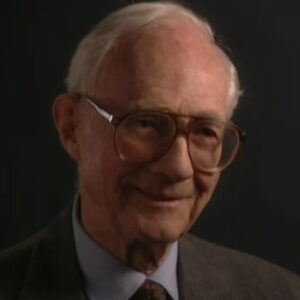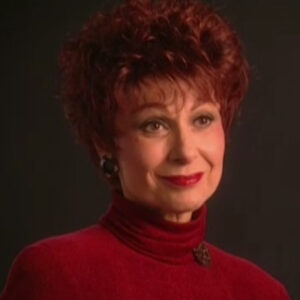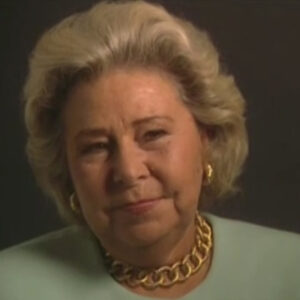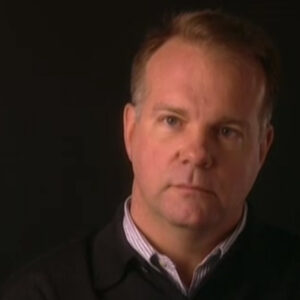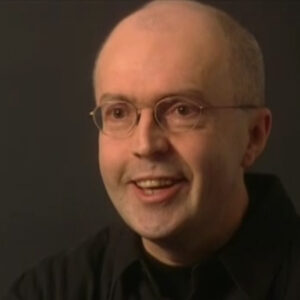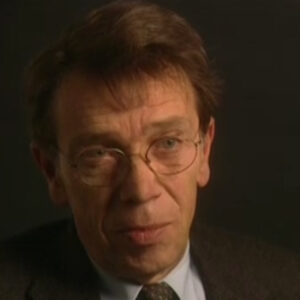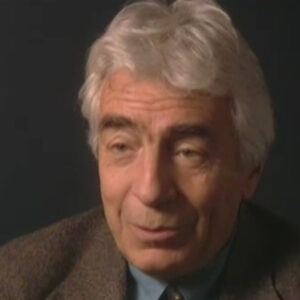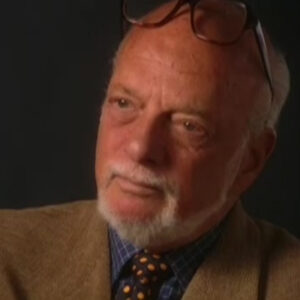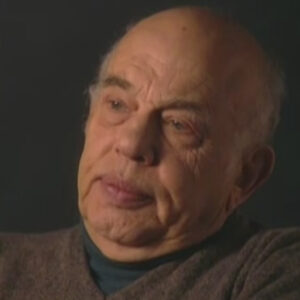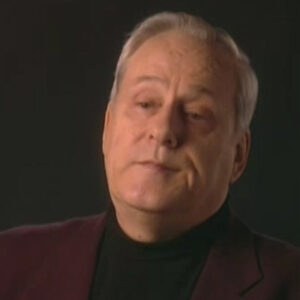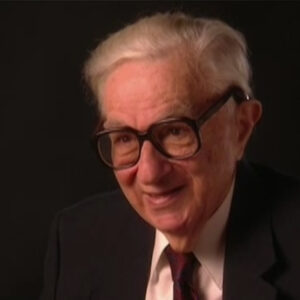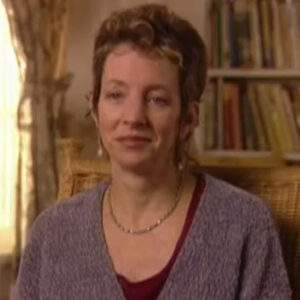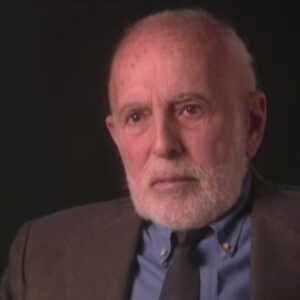Speaker It was really exciting for the best from the opera productions we had with Leonard Bernstein in Vienna. It was yes, it was first of Rosenkavalier Fidelio. And then we played some Concertante performances of of Valkyrie.
Speaker But I may be only one actor, something something like that. But full performance was the first of Rosenkavalier. Fidelia. Yeah. So you were in the audience. Must have been very young.
Speaker Yes. Yeah, I was. I was in the standing. I was called standing in the start of the slots.
Speaker And what was the audience reaction? This was Lenny’s first performance of Vienna.
Speaker Yes. Now it was I think for most people in the in the in the audience, he was they loved him at the first moment, although there were a few bars this this very quick and it music at the beginning of our stuff. And and I think everybody felt there is some. Like electric electricity of music, and everybody could participate in it. It was that was the first experience with Leonard Bernstein and then he joined the orchestra.
Speaker Yes, you did. What was so special about them? Can we talk about Mahler and Lenny and the orchestra’s feeling about Mahler and the desire to to instil Mahler? Yes, he talked about the fact that it was very difficult at first.
Speaker Yes, it was very difficult because a part of the orchestra in this time, the older members of the orchestra, the. Not everybody of this group had a real good connection to the music, maybe some of them didn’t play too much Marlock cause of Hitler and they had to accommodate again with this music. And that was very hard work for Leonard Bernstein, hard work for for these newcomers like like like me and some and many other young musicians, but also hard for Bandstand and in a way, hard for the older musicians. So there may be 15 were some years later we played again. It was it was it come more naturally.
Speaker And and but the first time was what did the orchestra come to appreciate Mahler differently. I mean, I know they did. Yeah. Was it, was that process and what was it that finally people began to hear in the music, changed the feeling.
Speaker Yes. I think the main reason was that that they were led by Bernstine, especially by Leonard Bernstein, to the sense of this music. And maybe they played Mahler before, but maybe it was not.
Speaker They are not let strong enough to that to the dance behind the music Dubow, maybe they played it like like like classical paton’s, but it’s not the style of Mahler. There are so many things at the same time, things which can’t harmonize and shouldn’t harmonize, but should happen at the same time. And perfect in Richmond at all, of course, but with very different character. And maybe that was very difficult for many musicians also with their routine and of what’s your most memorable musical experience for me, except of this very hard and instructive work.
Speaker And also for me as a new member with smaller and smaller fiefdoms, there may be some other symphonies in the same time or a little later. It was especially the performance of of Schumann symphonies. I think he had from all contactors. I got to know as a musician, as practically playing, he had the greatest affinity to Schumann’s music or also to some other to Sebelius and also with some very humorous performances of famous Haydn symphonies. But I think his his affinity to Schumann was very special. And and yes, maybe the.
Speaker He.
Speaker There were some psychological reasons he was these two souls, these very strong and weak, weak, so a part of us all, which is in every Schumann’s music and one character follows the others immediately. It’s never the same time as I told Mahler’s music, but it changes immediately. And I think that was maybe a part of.
Speaker Lenny’s character, and so he he could afford this this special. Changing of Stormi and certain and. Nearly the same moment week.
Speaker Sad sadness and sad that that was a special ability and the influence of the musicians was very strong in this and it did in human music. There have been some things which seem to be not naturally, and he was able to bring the orchestra and the other musicians in the form to do that.
Speaker How did he do that? Yeah.
Speaker Especially with his language of the language of his body. It was some more than contacting in in the academic sense, it was a kind of. Of rare acting, and that’s, I think, acting and acting for the musicians, not for the audience, for the for the people in front of the conductor. And that was.
Speaker He hated that that’s very well, I think the way he described the relationship with me or with the Vienna Philharmonic as the chemistry was destroyed. And I know you’ve been talking about that. Could you could you characterize for me what you think this special relationship was between the.
Speaker Yeah, I think.
Speaker This the special relationship.
Speaker Getting closer and closer from time to time, from year to year came from all the from the character of this orchestra, which is. Good, fine, and and very accurate in improvisation, in musical improvisation, and I think Bernstine also he studied everything very exactly. And he had for all music is his own fault for all kinds of music, his own material with special remarks from his hand. He appreciate that very much. It is this improvisation at the moment. And he expected such things. And I think he was very satisfied that more over this this this things which could be and should be rehearsed. So many details, speaking details came from the orchestra. And I think that that was the basis for this real close connection.
Speaker And Peter was telling me that you had a story about being on tour with Lenny.
Speaker Yes. It was. Got to say that it doesn’t matter that.
Speaker Chaplain, yes, yes, there was one situation on tour, maybe the only situation that he told something he said something bad about another contractor, but it was not directly. But I have to tell you, it was in Washington to I think maybe was the state opera with the NFL. We stayed in Washington and after the concerts, maybe two or three hours after the concert, I was sitting with a small group of members of the Vienna Philharmonic in a 24 hours restaurant of some somehow channels or something like that. So it was. Not very lecturer’s, but they were opened and. Maybe one or two o’clock in the night, Lenny came in very unusual with Tailcoat, he didn’t this evening. He didn’t change the clock that his clothes was as usual with tailcoat, with some friends. And he was searching for someplace where he could drink something of it. And it was and and we had some small party and we did some jokes like a cabaret. And I was I gave abroad some imitation of some other famous compacter. That time name is not important now. And another friend of the violinist of the orchestra, he did another one copy of another conductor. And we it was like a talk show and a dialogue between these contractors. And we did it for the other friends. And at that moment, Bernstein came in and he realized which conductors, which he realized that the originals of the and. And he was laughing and applauding and Bravo and her and after that he told me, Fritz, it was wonderful, really perfect. He it it was him, something like that. It was really him, but so unpleasant. And it was what it was the only the only time I saw it. And I took it as a kind of compliment for for this copy of this imitation. But it was the only time I heard something like that.
Speaker And the first and only time did she said, you know, when he felt such closeness to the audience. Yes.
Speaker And such closeness to the musicians and the almost like family. Did that translate into outside of the orchestra? How did you hang out together? Did you go and have dinner? You go to parties. Did you drink together? I’m curious.
Speaker But now sometimes they have a lot to especially for me, not too many occasions, but sometimes the of on tour there were some, some, some occasions to come together and but or on some special parties. After concerts, he joined the party and then and so he was like and it was like a combination of of course teach musician, teacher, father, brother Uzelac.
Speaker He was he was everything, nearly everything for everybody in this orchestra.
Speaker Have you ever worked with another team. I know. Are many other. Great. Yeah, but how and where does Lenny sit in the pantheon of conductors for you.
Speaker I think. I think he was.
Speaker I’m sure he was for me and for the time I could up to now to play a play with with so many contactors and also many excellent contactors, he was the greatest musician in a very common in a general sense.
Speaker It was if he was it was like. It was the same thing if he played piano, he was also contacting if he if he contacted, he was like an instrumentalist who should play himself at the moment. And and every time behind it was the composer, the creative artist. And that was the.
Speaker The.
Speaker You know, good sense that the shadow over all things he did, it was not it is not. It cannot be compared with with normal with bizarre conduct, which is only conductor. It’s this was another style. It was a composer, very creative musician, and that had an influence on all the things he did to perform his own music.
Speaker Yes, yes. I played, but not under his direction.
Speaker The mass at Vienna State Opera, a series of performances I played.
Speaker Of course, I played with him his candid overture, I played, I didn’t play, but the orchestra played, but I was free at that concert that his diva Demento, I played his Urania Symphony.
Speaker Yes, and I played.
Speaker With cello and piano, the meditations of Messe, which he dedicated to Mr. LaFalce Povich. So that’s maybe I played some more, but not at the moment. Also, remember this.
Speaker How do you how do you feel about.
Speaker Yet there are there were so many different styles, oh, so I forgot, forgot I played last year, I played at PMF Festival Sapporo with helicopter parents, the Soprano and Oncor, a song, a special song. She says she would like to sing as UMCOR for soprano piano and obligated as a cello solo. I think Dream with Me is the title of a play. That was the last time I played some Birdzell music last summer. Yeah, yes. There are so many different. They are, of course there are many different styles in his music. So. So it’s a. Far away from this that story told to some may be.
Speaker This meditation of messers also is a big distance, not although in time, but but silent and development of the country as a composer, but.
Speaker It’s. Never.
Speaker Cheap, it’s harvest and Siras anyway, also, although there are also some funny or some some things in his music, and I appreciate very much describe the reception to Lenny and people here.
Speaker Yes, it it was.
Speaker Like a great demonstration of love, as if he came on stage and and he was a.
Speaker A popular popular person in Vienna, and of course, he did something to to to to hold this image, it was his own way to get that sort. Of course, I saw him sometimes to wearing some typical Austrian codes and some some some radical style, you know, this and sometimes together with some blue jeans and some not so Austrian boots. But but he did that and the people loved it. Not more not little more later. But this is typical. Maybe Tyrolean or Saltzberg in style and and maybe not the right trousers. But and sometimes it is this high boots with which this was funny.
Speaker You sometimes expressed great surprise that he was so loved in Vienna, particularly because he was a Jew. Yeah. Surprised you about what element? How did his Jewishness enter in in any way at all.
Speaker You’re.
Speaker I think, of course, the people they knew that he was Jewish, but he had some. His his style to transport everything he would like to to to tell or to show people was into or over confessional anyway and I think. The people, they they they they left it so and maybe also some people. Which grew up with some kind of more or less anti-Semitism.
Speaker They they accepted him, I think, and I think it was that that was maybe also very important for a. Development in a better direction in these things in Vienna, Austria, and all the people in this German part, German speaking part of Europe.
Speaker Did you ever, um, did you go to Israel with me?
Speaker No, not I was not at this tour in Israel. I was a short time later after that, I was there with my string quartet and talking with some people about this. But I was unfortunately, I had to play at the opera, you know, because depending on our orchestra system.
Speaker Did you have any particular stories that they may have learned in Vienna?
Speaker He spent an enormous amount of time. Yes. Yes, he did. All Beethoven symphonies all over to you as.
Speaker I think also some piano concert concertos, maybe, but the symphonies and. For me, special that I listen to a short time ago to the two hour recordings of the Beethoven symphonies, and they are exceptional, I think. Especially that was of the mind, the first movement of the Ninth Symphony, which is for me for for the maybe for the conductor and the interpreter, one of a much more complicated than some others is maybe the best I heard or I could play with, I think was the second best in the Beethoven.
Speaker The second best. Yeah, yeah, yeah, yeah, yeah.
Speaker I think.
Speaker The third, the Eroica format, it’s also in, as I can remember on this, can you be a little more specific about what about that interpretation?
Speaker Yes, it was very interesting.
Speaker As for the playing musician at the moment.
Speaker Some.
Speaker Special access to the ingredients of this bit of music as society did this, this many a big number, a great number of thought and seemed and he insisted on these things. He was not satisfied to to to to ask for something until he got it, really. So it’s also very important not not every contractor that did this made and this thing seemed for the players sometimes.
Speaker Uh.
Speaker Too much to it to. Mom, I have to I have to look at this. Maybe we could cut this and if you listen, if I listened later to these recordings, it is.
Speaker In a musical sense, as perfect as possible, it he. So.
Speaker Of course, it was a great experience. I think it was a great experience to play and to follow these instructions and to to talk, to go to it, to understand all instructions. But I think the result and to listen to this result, that’s, of course, that’s the best way and of.
Speaker I think as I listen today, some Beethoven symphony, especially that, for instance, of the first movement of the mind or some other. So I enjoy much more than the time I played it, although I understood his.
Speaker But but sometimes it for for some taste and also the taste of some some musicians with which I played it well was that it seemed to be a little too much or too extreme, but it wasn’t extreme. It was as close as possible to the truth with. With.
Speaker So, yeah, yeah, yeah, yeah, yeah, let me spend a lot of time exploring both as well as well. Yeah, yeah. Going go and try to understand the man and connected. Yeah, it’s very interesting.
Speaker Hmm. Did you ever feel, oh, that’s just one just mention one other thing. Do you remember the 100th anniversary of the Vienna Symphony?
Speaker Vienna Philharmonic? Yeah, Mrs. Solemnis, you remember that it was performed for the 100th anniversary.
Speaker Yes, but. I didn’t I didn’t play this, Mr. Solemnis, I think I did better also, I don’t remember.
Speaker Did did it ever seem curious, I’m just because I’ve been to a lot of people here now, Lenny’s involvement with the Vienna Philharmonic was. Was controversial and a surprise, I mean, there were some American Jewish musicians, you know, yeah, there. Was that ever a factor? Were you aware as an orchestra that sometimes Lenny was criticized?
Speaker Yes, of.
Speaker Of course, he was a type of an extroverted contractor and that Zimet for for for for especially for the for the older generation of the enemies that seemed.
Speaker In a way, a little bit unserious and.
Speaker But as I told you before, this, the main part of this kind of acting within this contacting was for the people in front, for the musician and for to stimulate them in their in in in a good and a direction decided by the composer. And that was important. It was not a it was, of course.
Speaker Some people in the audience, maybe not all, but the bigger part, they they appreciate also very much, but but it was in first line. It was for the musicians and.
Speaker Maybe. Extra, extra, that kind and style was a little strange at the beginning of this.
Speaker Long time, Lincoln. Is there something that you like to say about Lenny that I haven’t asked you much? I haven’t asked you, but why don’t you say some of the things that you would like to say that I haven’t asked you? But what would you like to say about Lenny that I saw again so I would.
Speaker I would like to tell you also a very personal story.
Speaker A.
Speaker Which shows his. In a way, naive kind, his his fans and for the devotion of a musician doing his work, it was.
Speaker At a performance which is also recorded on TV and and footage of the Fourth Symphony of Schumann’s Fourth Symphony, it was the last call of the first movements and the symphony.
Speaker It’s the every mixed part follows nearly immediately Ataka on the other. So it should be as this interval between the movement should be as short as possible, not as usual of covering it. And it was it is a facade and a court, a broken court for voices caught in every string section.
Speaker I was sitting on first and to his right hand and in concert and maybe I let my bow a little the wrong not not the right way.
Speaker And I on this last court, I tore off a piece such a piece of wood from the cover of my cello and it and I hurled it inside the stage and it it was flying under the seats of some viola player, but maybe of five meters far from there. And there was Ataca, the second movement with the cello. So I was sitting inside or the outside. We are here to play the cello. So I was looking on my cello. It was like a like a mailbox without this. So it was open. But I had to play. I couldn’t change the instrument. So I played the rest of the symphony and you can see it in the TV film is it’s it’s later we did some some retake or something and I played with another. But but but the main part of the symphony is, was this open instrument. And he realized it may be at the moment. And he started he realized the place where this this part of my instrument came to life. And after the symphony applause and before he turned to the audience for thankful for for the for the clapping there he went five meters inside the stage and took this piece of wood. It was no more at the moment, took it and put it in his pocket of his tailcoat and he kissed it. It was very interesting. So so it was like a symbol for maybe for for the devotion of a musician or something. And he took it and put it behind. This handkerchief was going up. And I was a little of course, I was in a way, I was proud about this demonstration in on the other way. I was a little anxious that he could take it away maybe and as a souvenir. And the second time he came out, I saw I was looking only on his was still still here. And thanks to the fact that Lenny, after some scene from the outside backstage, he usually got some cigarette for four to four to relax. And at the moment he took his cigarette. He got a cigarette. Our violin maker who saw the whole situation and he took out from behind, he came and he he he took the vote and he later he repaired the cello. Is this but it’s funny. So it was a very, very special situation on stage with Leonard Bernstein.
Speaker So I’m sure he was going to give it back to you.
Speaker Yes, maybe we didn’t know, but it seemed that he wouldn’t like to me. I it I at the moment, I thought, of course, it was nice in a way, but I thought he would like to take it with with him for.
Speaker Yo, yo, yo, do you have any other anecdotal stories about Lenny that you think would be interesting to.
Speaker Speaking of. Yes.
Speaker It was after a performance of the Fifth Symphony of Gustav Mahler. In Newtown. And.
Speaker There was in the in the famous slow movement, the other jetter, there was.
Speaker A little mistake or misunderstanding.
Speaker Between Bernstine and maybe that the upper half of the general section in this famous melody of that jato and maybe he was also maybe four seconds, he was not very concentrated in some misunderstanding. And so there came some little strange things for for some seconds. And, of course, that the performance at all levels was splendid and a big success.
Speaker And after that, I was with some friends in a restaurant and Bernstine was announced to come there after concert. And maybe because of this little mistake, he was maybe a little depressive or something like that, but he felt so they and a group of persons and they were waiting for him there in a special room. I was sitting outside in the normal guest room and they were waiting maybe about two hours for him. And then he came. He wouldn’t like to eat anything so good.
Speaker And all people around telling him some lies, more or less, but compliments and thank you. And it was fantastic. And he maybe he drank a little bit whiskey as usual, between. He was.
Speaker Uh.
Speaker He tried to explain, but maybe only for himself, because they did not understand the problem to explain this. Mistake, there’s little mistake like that, I don’t know, I was I beat this bar in four and they played maybe they thought I’m in eight and something like that. And between the other peoples, they said, not my. So it was a wonderful Malha. But why did they play it? Maybe I was wrong. And that that was interesting. He was not angry. There was no and it it would have been much easier in this circle of of people admiring him to to to maybe to criticize the orchestra and finish it. But he.
Speaker Well, searching that the.
Speaker The reason for it in his person may be in some personal, small mistake, it was very interesting. Nobut and he done that. I was standing on the door. He didn’t see me, but I heard that was very interesting. And yes, this was fantastic and I was very glad to to to be there. I didn’t know he should come and he was announced to be there and this evening, it’s very interesting, but it was of course, it was a little comical because course the other people did they didn’t understand this these technical details that he did. It was like a monologue or a monologue with his audience.
Speaker Oh, yeah, yeah, yeah, yeah, yes, yes, of course.
Speaker But next next concert, it was everything was OK also for him, but of course it was hit. He took a hit with with him in his breast, in his soul.
Speaker But it was very I was very happy, so he didn’t he didn’t accuse the Orchestre generally for that also not in that in this situation with the PM’s friends and admirers, were there ever any what we call testy moments and during rehearsal between the difficult moments?
Speaker Yes. Yes, of course. Especially in the especially in the first time in the indeed his first experience with him and Mahler’s symphonies. There were. Yes, there were.
Speaker There were some.
Speaker Special controversies with some. Solar, wind players and.
Speaker But it’s very difficult to it’s I can’t remember now on this.
Speaker And the details, but.
Speaker It was if there was some artistic problem to clear up, for instance, they asked for maybe a better lighting or for for some for to switch off the heating or something like that.
Speaker So so they were they were talking to everybody in another in another direction.
Speaker That was the first time that there was of and and he couldn’t he wouldn’t like that. So he he was as if he was standing and doing his music. And he he was more than 100 percent inside this music.
Speaker And he didn’t like people which couldn’t concentrate for more or less short time on this. When you do that, you know, sometimes he.
Speaker He interrupted the rehearsal process, it went out, but every time he came again, that was also very professional, he never canceled something.
Speaker Only because he was maybe angry about somebody. Never. And also not in the years he was getting sick.
Speaker He never canceled and and and he never ran off forever until he died, the. I appreciate that very much. He was not. Not famous for to cancel concerts, that’s also another style, which.
Speaker Hmm, may have, although it’s success for other people, but that was not the style of ladybirds. And what do you think this last year?
Speaker Do you think he will be remembered for?
Speaker It’s very difficult to answer that because.
Speaker Maybe.
Speaker His maybe he will be so, you know, all over the world, maybe the people will remember in on him because of his West Side Story, maybe, but for.
Speaker Musicians, I think.
Speaker That he was he was not a specialist, he was a specialist for nothing, but he he did everything he did as well as a specialist. And that that was he was an universal type. His he’s universality, universal type of artist and.
Speaker Universal person had a fantastic background in education and. Studies.
Speaker It didn’t show these very different sides to much, he was it was only the influence of all these things are into his into making music, and that was important. It was one of the for me, one of the last maestre, the music in a old fashioned, very old fashioned sense, I think.

